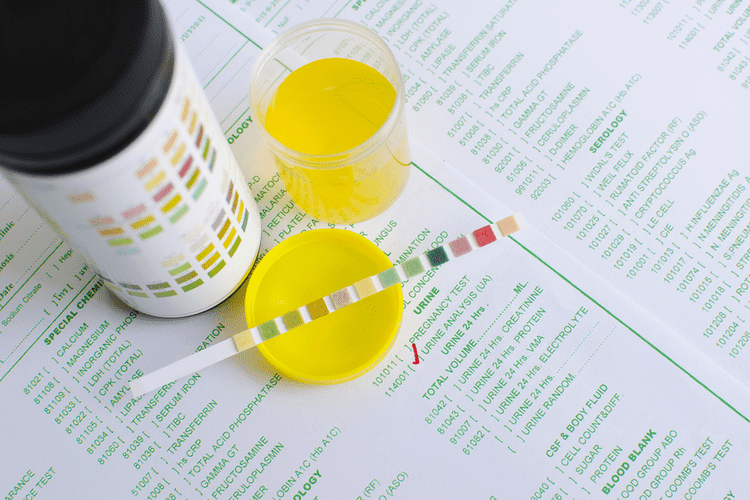When your glass is empty, spend a few moments reflecting on whether you truly want another. Slowing down—instead of mindlessly chugging—can help ensure that you make clearheaded decisions about what and how much you drink, kickstarting a healthier relationship with alcohol. Later, it can cause fatigue, bleeding and bruising, itchy skin, yellow discoloration of the skin and eyes and fluid accumulation in the abdomen known as ascites. Fluid buildup in end-stage liver disease is a particularly ominous sign. Fifty percent of patients with ascites typically die within two years if they don’t have a liver transplant. It’s common at this point for alcoholics to have lost their jobs as well their friends and family.
- That feeling of desperately needing water to help with a dry mouth after waking up from a night of drinking is due to dehydration.
- By the time they’ve reached the third and final stage of alcoholism, drinking has consumed their lives.
- The most common health effects include heart, liver and nerve damage, as well as memory problems and sexual dysfunction.
- If you’re feeling low, it can be helpful to talk about your mood with family, friends or even seek help.
- Although not drinking to the point of becoming drunk is a common way people gauge how much they should drink, it can be inaccurate.
It is potentially life-threatening, so it is essential to seek medical attention immediately if you experience such symptoms. You may also begin to notice a number of improvements in your physical health. You’ll have more Do Alcoholics Drink Every Day energy and stamina, and you may notice that your skin looks healthier. “Tell so-and-so that if they see you behaving in a certain way, they should let you know, and you’ll head out early and call it a night,” Shah says.
More From TIME
That equals 5 ounces of wine, 12 ounces of beer, 8 to 9 ounces of malt liquor and 1.5 ounces (one shot) of 80-proof spirits or “hard” liquor. If you’re rejecting the label alcoholic because you want to leave yourself the option to drink again, that’s a problem. You haven’t accepted that you need to quit drinking yet and will likely stay on that relapse merry-go-round. I knew I drank to escape feeling stressed, miserable, and like my life had no joy or meaning.
- The NHS has a range of helplines and support groups that can offer expert advice.
- Mostly, these cases are temporary and don’t cause life-long problems.
- However, if you are researching how many drinks an alcoholic consumes, this may signal a drinking problem.
Late-stage, or end-stage alcoholism, is a full-blown addiction to alcohol, almost always requiring alcohol detox to start recovery. The person now spends the bulk of their time servicing the disease by drinking. In this last stage of alcoholism, the individual often exhibits both physical and mental health issues. Once someone hits stage four, their bodies are not what they used to be. When they examine themselves in the mirror, they may not recognize themselves. Common outward changes may include flushed skin and a distended stomach or “beer belly.” They may not be aware, but alcohol is affecting their bodies internally as well.
Treatment
While light drinking may have some health benefits for some people, if that one drink turns into three, five or more, that’s a problem. And if drinking too much alcohol has become a nightly habit, your body may be silently suffering. Typically, alcohol withdrawal symptoms happen for heavier drinkers.
- People with this disorder are unable to stop drinking even if it causes emotional or physical problems to them or those around them.
- It’s important to know that alcohol use disorder (AUD) can manifest differently from person to person, which means one alcoholic may drink more than another.
- † Largest number of drinks consumed on an occasion in the past 30 days among adults who reported binge drinking.
- The liver is very forgiving — it can take a lot of abuse before it has had enough.
- Later, it can cause fatigue, bleeding and bruising, itchy skin, yellow discoloration of the skin and eyes and fluid accumulation in the abdomen known as ascites.
- The mental health changes you experience when you stop drinking can include symptoms of withdrawal, difficulty sleeping, irritability, mood swings, and clearer thinking.
One of the financial benefits of giving up alcohol is that you’ll likely have more money to spend. This is because alcohol is a costly habit, so giving it up can free up some extra https://ecosoberhouse.com/ cash. Another benefit of giving up alcohol is that your mind may be clearer. This is because alcohol can cause changes in brain chemistry, which can lead to cognitive problems.
Do alcoholics drink every day?
The real question for deciding if you have a drinking problem has more to do with how and why someone drinks rather than how many days a week someone drinks. Unfortunately, if either of these drinkers suffers from AUD, it is unlikely that either will get treatment for their alcoholism. According to research, only about 10% of problem drinkers get treatment. That definition is broad enough to include all alcoholics, people who suffer from alcoholism. Many of us probably have the semi-homeless looking man drinking from a bottle of cheap wine or vodka stuffed in a brown paper bag. This stereotypical alcoholic would always be extremely drunk—morning, noon, and night.

According to the World Health Organization, it contributes to three million deaths globally each year. So is it true that something with such severe side effects can actually be good for us? Once the initial symptoms of withdrawal have subsided, you may find that you have more energy than you did before you stopped drinking.
You May Feel Happier
A healthy gut keeps mood stable, hormones regulated, immunity intact, and inflammation low. Alcohol can wreak havoc on gut health by damaging the lining of the gastrointestinal tract and killing off beneficial gut bacteria. There are many benefits to giving up alcohol, both short-term and long-term. If you’re considering quitting drinking, these benefits may be just what you need to help you decide.


